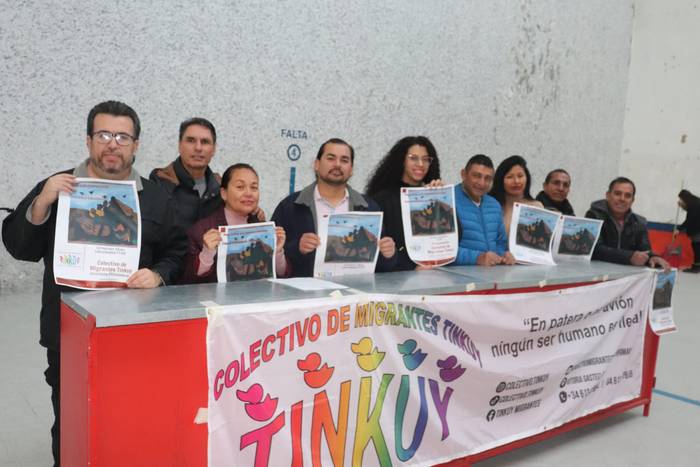
- Tinkuy members have explained that the problem lies in the North-South division of the world and have presented an eight-point manifesto to fight for the rights of migrants. In the presentation, the group is committed to raising awareness of climate change and has explained that the south is the territory that supports the production and consumption system of the northern countries.

Migrants from Vitoria-Gasteiz have created the Tinkuy collective and presented it on Saturday in the Auzolana fronton of Vitoria-Gasteiz. The group was born to fight for the rights of migrants, with an agenda of eight different demands. They claim that they are "against the extreme right fascists and their lies" and that they are going to bet on a society based on justice and equality, inviting everyone who is willing to participate. "We don't accept the lies of money owners, nor the paternalism of those who say they protect us from NGOs and political parties, they want to be our voice but without giving us the opportunity to speak for ourselves."
Tinkuy’s members say that the north-south division of the world is unfair and that it is “the source” of a global problem. "Migrating is not easy and not totally voluntary." The group, born contrary to what racist monsters say, has explained that migrant people benefit society, contribute more than they receive. "We are workers, we are not criminals," he said.
Along with racism, the group has taken on the responsibility of raising awareness of climate change and has placed the focus of the problem on the production and consumption system of the countries of the north, which the countries of the south later suffer. In Tinkuy’s view, the transformation of political and economic structures is fundamental to tackling climate change.
Typical eight-point agenda
The first of eight demands presented by Tinkuy has been the immediate and massive regularization of working migrants. “It is unfair to force people to live three years without papers and with police harassment in order to gain social support.” They have also called for the closure of ICN centres and have denounced this as "secret prisons".
They have also called for the amendment of the law on aliens because they consider that it violates the constitutional protection of legal equality. Thus, they have argued that migrant women suffer “double oppression”, as “they are the support of the care system”.
There has also been talk about the education system, and the members of Tinkuy have called for decolonizing content to be included in public education and in public debate to generate reflection on racist foundations and Eurocentrism.
In this regard, they have pointed out that migrants have problems in creating housing and employment. They denounce that “administrative bureaucracy and social prejudices” make migrants get worse jobs and have great difficulty accessing decent housing.
Tinkuy has concluded his presentation by stressing the need to combat all hate speeches, which he will face through “permanent mobilization”.